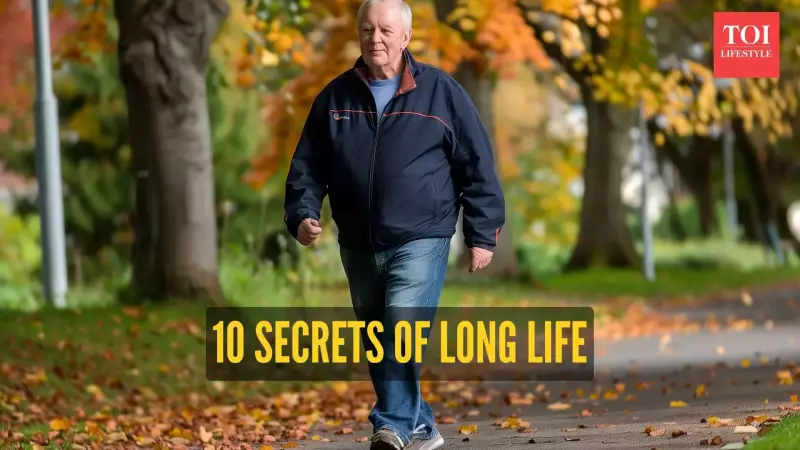
What if the secret to living to 100 wasn't just about eating your vegetables and exercising? Research into the world's longest-living populations reveals some surprising patterns that challenge conventional wisdom about health and aging.
The Unconventional Wisdom of Centenarians
While we often focus on diet and exercise as the primary factors for longevity, studies of Blue Zones—regions with exceptionally high concentrations of centenarians—show that the recipe for a long life is far more complex and interesting.
1. Strong Social Connections Trump Gym Memberships
In Okinawa, Japan, people maintain "moais"—small social groups that provide emotional and financial support throughout life. These deep connections reduce stress and provide purpose, potentially adding years to your lifespan.
2. Natural Movement Becomes a Way of Life
Centenarians don't necessarily hit the gym. Instead, they incorporate movement into daily life through gardening, walking everywhere, and performing household chores manually. This consistent, low-intensity activity keeps them active well into old age.
3. The 80% Rule for Eating
Okinawans practice "hara hachi bu"—eating until they're 80% full. This simple habit prevents overeating and reduces calorie consumption naturally, without complicated diet plans.
4. Purpose-Driven Living
Having a reason to wake up in the morning—what the Japanese call "ikigai"—can add up to seven years to your life expectancy. This sense of purpose provides motivation and mental resilience.
5. Plant-Slant Diet
While not strictly vegetarian, long-living populations consume meat sparingly, treating it as a celebratory food rather than a daily staple. Beans, whole grains, and vegetables form the foundation of their diets.
6. Wine at Five
Moderate, regular alcohol consumption—particularly wine with friends and family—is common in most Blue Zones. The social context appears to be as important as the beverage itself.
7. Belonging to a Faith Community
Research shows that attending faith-based services four times per month can add 4-14 years to life expectancy, regardless of the specific religion.
8. Family First Mentality
Keeping aging parents and grandparents nearby, committing to a life partner, and investing time in children creates strong family bonds that contribute to longer, healthier lives.
9. The Right Tribe
Long-living people unconsciously surround themselves with health-conscious friends. Studies show that habits like obesity, happiness, and even smoking spread through social networks.
10. Stress-Reduction Rituals
Centenarians have built-in methods for shedding stress—whether it's Okinawans taking moments to remember ancestors, Adventists praying, or Sardinians enjoying happy hour.
The Bottom Line
Living longer isn't just about individual health choices but about creating an environment and lifestyle that naturally supports wellbeing. The most surprising revelation? Social connections and purpose might be more important than any superfood or exercise regimen.






